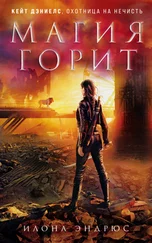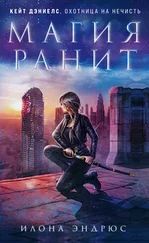We passed through security and gave our names to the concierge. We were expected, and he walked us to the elevator. People stopped and looked at Alessandro. Men and women.
It wasn’t just his stunning face, it was the way he wore his clothes, the way he walked, the expression on his face, the hint of a smile in the corners of his mouth. He represented the unreachable ideal they strived toward, power, wealth, youth, beauty . . . The perfect scion of a House. I had no doubt that if we lingered, he would collect a stack of business cards, room keys, and phone numbers hastily scrawled on the first available scrap of paper.
I liked the other Alessandro better. The one who didn’t bother to pretend. The one with lethal magic and a dangerous mind. The one who cursed because I wouldn’t let him take me to the hospital and then patched my wounds on the side of a road.
The concierge handed us off to the elevator operator, who swiped his keycard and delivered us to the sixth floor. We exited into a long rectangular room. A black marble floor stretched to walls the color of coffee with too much cream. The tinted windows dimmed the light to a soft golden glow. Here and there pedestals of frosted glass rose, lit from within by LED lights, and paired with digital screens, some as small as a tablet, some, on the walls, the size of a small TV. A small construct rested on top of each pillar, illuminated by their glow. Odd.
Alessandro raised his eyebrows.
We started forward. The pillar on the left flashed, reacting to our movement. The construct on its top twisted. Magenta-colored magic sparked, and the small mechanical beast came to life.
About a foot across and eight inches high, the construct seemed old and a little crude, a collection of metal gears and cogs, shaped vaguely like a mole with four front limbs, two where the normal paws would be and two others, inverted so they pointed out, attached to the mole’s back. All four came equipped with long curved claws.
The screen on the wall behind the mole turned on, showing a black-and-white picture of a young man. He wore a dark suit and lighter frock coat and held a derby hat in his hand. Next to him a massive version of the mole construct towered, ten feet high, with claws the size of giant bulldozer blades. The caption underneath read “Secondo Castellano, 1901, Digger I.”
From where I stood, I could see other pedestals with their own photos. 1912, Crawler I, a millipede with a multitude of arms, each capable of picking up a large container. 1927, a strange beast with a scrapper attached to it, some sort of bulldozer equivalent. 1932, a bizarre grasshopper mutant capable of raising power poles. 1948, Digger V, updated and refined to be more efficient . . .
We were in House Castellano’s personal museum.
Alessandro studied the room. His face turned thoughtful.
“What is it?” I asked.
“I’ve never stood inside someone’s American Dream before.”
A family of immigrants, coming to the US, starting a business, growing it into a House worth millions. “A version of it, yes.”
We resumed walking.
“My mom once told me that the American Dream was to live better than your parents.”
“Do you think it’s true?” he asked.
“I think everyone defines better differently. Some want more money. Others want more time.”
“What do you want?”
The answer popped into my head so fast, I didn’t even have to think about it.
“Security. I want my family to be safe in all ways. I want them to be secure from attacks, physical, magical, and financial. I want us to have enough money to cover our bills, to allow everyone to have the career they want, and to take time off if they need it. To not be one disaster away from complete collapse. Less disasters would be really nice. As a House, I want us to have a solid reputation, the kind that commands respect, so everyone can marry whoever they want without jumping through hurdles.”
“That’s all about your family. What about you?”
My happy dream died six months ago. Earlier, actually, before any of us realized the depth of Victoria Tremaine’s scheming. One day I would get back some of what I lost, but by then it would be too late for me and Alessandro.
“My family is my happiness.”
A dangerous shadow flickered through his eyes. “Don’t say that.”
I must have hit a raw nerve by accident.
The pedestals kept going. We passed out of the twentieth century into the new millennium. The constructs slimmed down, becoming sleeker, more specialized. A spider to climb buildings and deliver supplies to disaster areas over rugged terrain. A mobile solar battery shaped like a flower that crawled forward on tentacle-roots.
The pictures changed too, as did the names. From Secondo to Francis, then Janet, then Sean and Mark, then finally, Cheryl. It was a trip through history designed to impress. Had we come to do business with House Castellano, by the time we reached the frosted glass doors at the other end, we would have been humbled and grateful for the opportunity.
But I wasn’t here to be humble. I was here to interrogate Cheryl about a murder. None of her family’s admittedly impressive achievements would change that.
The museum ended in another lobby and a pretty female secretary ushered us into Cheryl’s office.
Prime Castellano smiled at us from behind a solid black glass desk, accented with gold. She wore a soft silk blouse the color of bluebonnets and a tailored skirt. A porcelain brooch in the shape of a delicate white orchid rested on her chest. Her hair coiled on her head in soft feminine waves.
A man in his thirties stood on her right. Large brown eyes, deep bronze skin, South Asian ancestry. His gaze fixed on me and a faint shadow slid over my mind, filled with a distant echo of a wail. Mentovocifer, a mind shrieker. Victoria had had me fight one. They attacked by flooding the mind with magic, which their victim’s brain interpreted as a deafening, agonizing scream. Cheryl was taking no chances.
She rose. “A pleasure to see you both again, although I do wish it was under better circumstances.”
“Such a tragedy,” Alessandro offered.
Cheryl held out her hand to me. I shook it. Her fingers were soft, her handshake gentle. She got me out of the way and shifted her attention to Alessandro. He kissed her hand. Cheryl smiled in that particular way women smiled at Alessandro. He smiled back at her, a charming roguish grin that said, Yes, I would be a lot of fun . I resisted the urge to smack the back of his head.
“Please sit down.”
We took our places in two black chairs. Cheryl settled back behind the desk. It struck me how out of place she seemed. The office was luxurious, but so impersonal, it almost looked staged. Grey walls, chestnut wood paneling, black and gold color scheme. A distinctly corporate space devoid of personal touches.
This couldn’t have been her regular office. Frequently used offices, like most of the spaces people occupied, accumulated personal touches: photographs, plants, knickknacks, business gifts. She must have borrowed it for the meeting, most likely from her uncle, who had retired and rarely involved himself in the House business, according to Bern’s summary.
Cheryl didn’t want me to see her space. She could have done it out of privacy concerns, or because this office was convenient and impressive, but I doubted it. She did it because her regular office would’ve told me things about her, and she didn’t want me to gain any insights.
What are you hiding, Cheryl?
“This is Rahul.” Cheryl looked at the shrieker with a small smile. “He’s going to sit in on our meeting. Didn’t you have an interview with Marat this morning? How did it go?”
Читать дальше
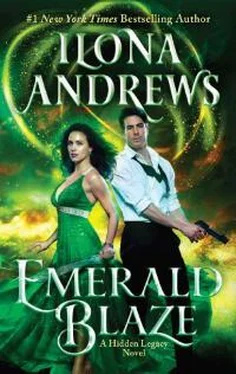
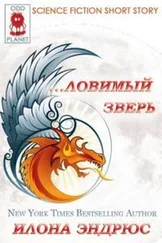
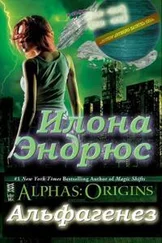
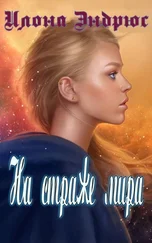
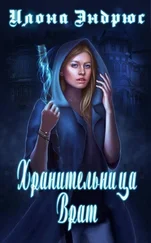

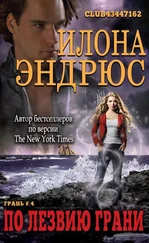
![Илона Эндрюс - Магия горит [litres]](/books/401265/ilona-endryus-magiya-gorit-litres-thumb.webp)

